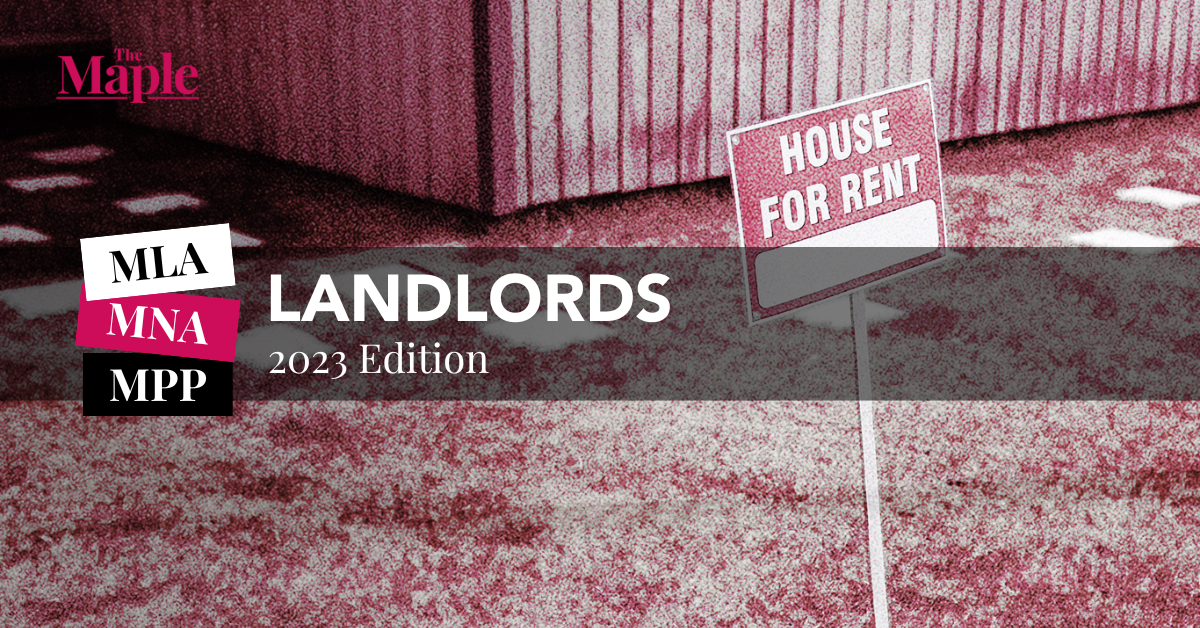- cross-posted to:
- politics@beehaw.org
- canada@lemmy.ca
- cross-posted to:
- politics@beehaw.org
- canada@lemmy.ca
cross-posted from: https://beehaw.org/post/8043511
Excellent tool from independent media org The Maple.
Spoiler turns out it’s basically all of them
When I was a kid, my folks owned about 3 rental properties. I didn’t really feel like they were untrustworthy, even about the rental market. After 1983 when the interest rate got about 4 times as high as these fuckers were whining about and we lost our metric shirt in the fire-sale bloodbath, I still didn’t note any bias.
-
Start with trustworthy people - SIT DOWN, Milhouse
-
Trust them. Or get rid of them.
-
Go to 1
-
This isn’t exactly mind blowing, 65%, of residential properties are lived in by their owners.
Given that you need a bit of wealth to even run as a candidate, you’d expect them to have bought a house.
Its landlords - so non-principal residences - and invested in real estate as in ownership of REITs or private real estate corporations.
So, nothing at all to do with principal residences, which is pretty amazingly clear when you click the link and read the article.
Such a weird divide. I realize it is to try and make those who seek employment profit with their home as a capital asset feel special and “not like those other investors”, but it’s a false narrative. An investor is an investor is an investor.
It’s not a false narrative at all. It’s an ideological difference.
You think personal property is a financial investment. Some of us see it as a home.
You’re emblamatic of what’s wrong with the housing market.
I’m confused. Are you saying that no one should own a home?
The whole purpose of this is to identify those politicians that have a conflict of interest in making decisions regarding primary housing for Canadians.
Investment property owners (non-principal properties) have a conflict of interest because they may not want to make new rules that would affect taxation of income or capital, institute rent controls, or adversely impact current property values.
Those invested in REITs or REOCs have a conflict because they may not want to affect the beneficial tax structure of REITs (flow-thru Trusts), nor limit the investment opportunities to non-residential properties (as right now multifamily and apartment REITs are wildly profitable and a major source of urban centre rent inflation).
Those “invested” in just their primary residence and who are not landlords or real estate investors have (nearly all) of their incentives properly aligned with the goals of normal Canadians who just want to own their own home. Like all home owners, they may not want to see market prices decline, but ultimately most homeowners just want a place to call their own and to not see money go down the black hole of rent.
Are you saying that no one should own a home?
No. Where, exactly, did you become confused? I would be happy to try and clarify it.
Considering how many homes have suites, it’s not really fair to say it excludes principal residences.



